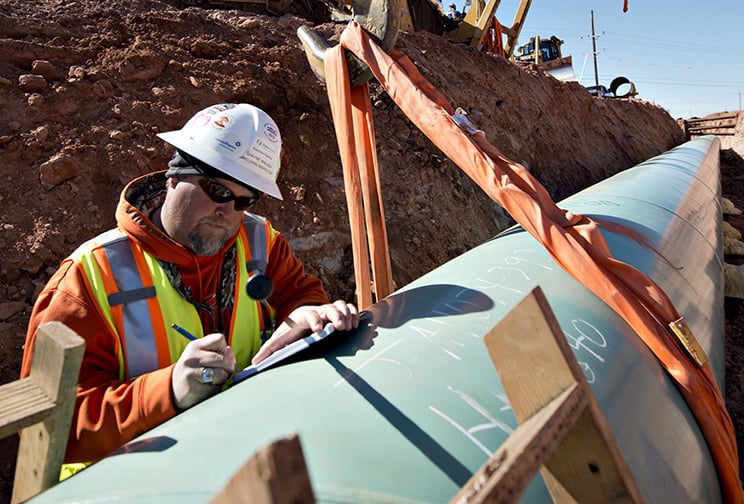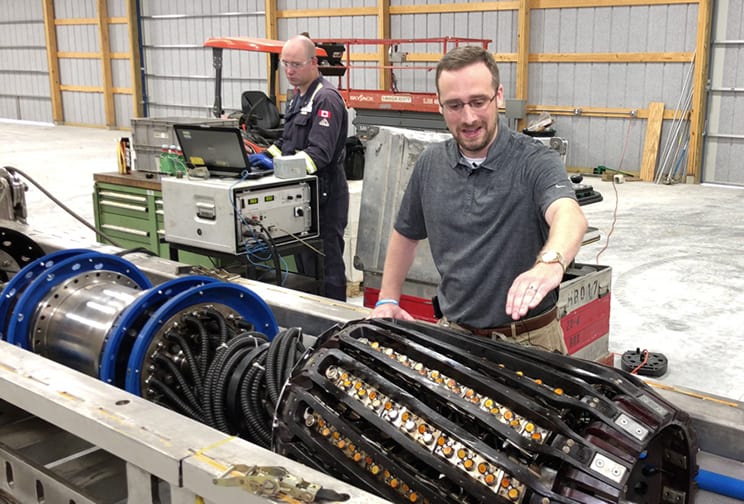CO2 capture and storage in Louisiana will create new jobs and protect the existing jobs that sustain our vital manufacturing and energy industries.
It involves capturing emissions instead of releasing them into the atmosphere.
Pipelines carry the CO2 to permanent, safe storage deep underground. This helps the Louisiana petrochemical industry reduce carbon dioxide emissions.
Louisiana can grow energy jobs and our state’s economy with carbon capture and storage.
How Permanent Storage Works
Storing CO2 is like the reverse of drilling for natural gas. Instead of drilling through rock to extract gas, CO2 is injected under rock layers deep underground that keep oil and gas locked in place.
- CO2 storage sites are carefully selected after rigorous analysis to ensure they are geologically suitable. CO2 is stored thousands of feet underground, well below any sources of drinking water.
The top 5 reasons why CO2 capture and storage benefit Louisiana:
Why Louisiana?
- We need to sustain our energy and industrial jobs. And we have the natural geology deep underground for safely storing carbon emissions from these industries.
- Louisiana has a long, proven history of safe underground storage operations.
- America’s underground Strategic Petroleum Reserve is an example – two storage sites have been operating safely beneath Iberville and Cameron Parishes for more than 30 years.
Louisiana’s heavy industry jobs will be hard to sustain long term without capturing and storing carbon emissions.
CO2 Pipeline Safety in Action
CO2 pipeline and storage operators proactively inspect and monitor all infrastructure and conduct preventive maintenance. Personnel monitor operations 24/7 and can shut down a CO2 pipeline if there is a problem. CO2 pipelines are constructed with high-grade steel and a protective coating to help prevent corrosion.
Hi-Tech Inspection Tools
Preventive Maintenance
24/7 Monitoring
Hi-Grade Steel & Protective Coatings
Information on how pipelines work, how they are constructed and what pipeline operators do to keep them safe.
Pipelines deliver the benefits of affordable energy, helping us get where we need to go and making life more convenient.
Proactive inspections, preventive maintenance, and 24/7 monitoring all keep pipelines and surrounding areas safe.



